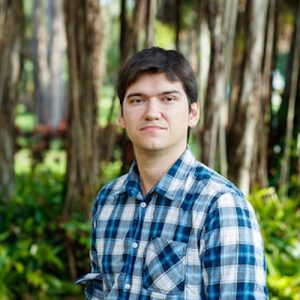Education
Ph.D., Statistics, University of Florida
M.S., Statistics, University of Florida
BSc, Applied Mathematics and Computer Science, Lomonosov Moscow State University
Professor Skripnikov was a postdoctoral associate and lecturer at the University of Houston, teaching courses in Statistical Computing and Machine Learning on both graduate and undergraduate-level, conducting research in the areas of high-dimensional data and time series analysis. Applications of interest include, among others, gene expression data, studying brain activity, econometric time series and sports data.
Recent Courses
Applied Linear Models
Statistical Learning
Applied Statistics
SET SAIL: Exposing Lies in a Data-Driven World
Selected Publications
Skripnikov, Andrey. ”Partially constrained group variable selection to adjust for complementary unit performance in American college football.” Journal of Applied Statistics (2023): 1-15.
Skripnikov, A., et al. ”Using localized Twitter activity to assess harmful algal bloom impacts of Karenia brevis in Florida, USA.” Harmful Algae 110 (2021): 102118.
Skripnikov, Andrey, and George Michailidis. ”Regularized joint estimation of related vector autoregressive models.” Computational statistics data analysis 139 (2019): 164-177.
Skripnikov, A., and G. Michailidis. ”Joint estimation of multiple network Granger causal models.” Econometrics and Statistics 10 (2019): 120-133.
Skripnikov, Andrey. Topics in Joint Estimation of Vector Autoregressive Models. Diss. University of Florida, 2017.
Presentations
Skripnikov, A.V., ”Partially Constrained Group Variable Selection to Adjust for Complementary Unit Performance in American College Football” – refereed session at the Symposium on Data Science and Statistics (American Statistical Association), June 2022.
Skripnikov, A.V., ”Twitter Analytics for Florida Red Tide Impact Assessment” – contributed session at BASIS 7-ANEP (”Bay Area Scientific Information Symposium The Association of National Estuary Programs”), March 2022

